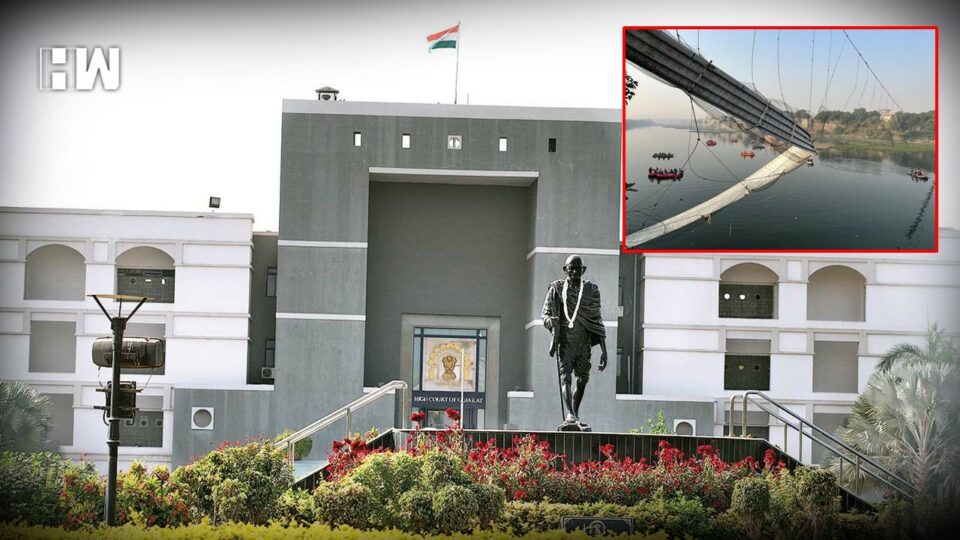Hearing the suo-motu case over collapse of Morbi suspension bridge that killed 130 people last month, the Gujarat High Court on Tuesday rebuked the Morbi civic body for “acting smart” while seeking direct answers. The HC also lashed out at the manner in which the contract was awarded for maintenance of a 150-year-old British-era bridge.
In its preliminary observation, the court remarked: “The municipality, a government body, has defaulted, which ultimately killed 135 people.” The bench, realising that no official had appeared to represent the civic body despite a notice, said: “They are acting smart.”
Asking officials to come back with details on if the condition of issuing certification of fitness before reopening was part the conditions mentioned in the agreement. The bench also asked who the person responsible was.
“The state shall also place on record reasons why disciplinary proceedings against chief officer of the civic body aren’t commenced,” the Gujarat HC said.
“The largesse of the state seems to have been granted without there being any tender floated in this regard.”
At the opening hearing of the case that will be heard on Wednesday too, state’s top bureaucrat Chief Secretary was asked by Chief Justice Aravind Kumar: “Why was the tender for the repair work of a public bridge not floated? Why weren’t bids invited?”
“How was an agreement for such an important work completed in just one and a half pages? Was the largesse of the state given to Ajanta company without any tender being floated?” the court asked.
“On which basis the bridge was being operated by the company after June 2017 even when [the contract signed in 2008] was not renewed?” the court asked. A new agreement was signed between the company and civic body this year.
The Gujarat HC ordered the Principal District Judge of Morbi to appoint a bailiff to a notice to the civic body. Though the state has filed an affidavit, some clarifications were needed about the contract, the court noted.
“The list of chronological events would indicate that MoU (Memorandum of Understanding) was signed on June 16, 2008, between Collector and the contractor,” the bench said.
“This [contract] was to operate, maintain, manage and collect rent in respect of the suspension bridge. The said period expired on June 15, 2017. Thus the moot question would be: Under this MoU, who had been fixed the responsibility to certify the fitness of bridge… After the term was over in 2017, what steps were taken by Morbi civic body and the Collector thereafter to float a tender?” the court asked, seeking response.
As an independent media platform, we do not take advertisements from governments and corporate houses. It is you, our readers, who have supported us on our journey to do honest and unbiased journalism. Please contribute, so that we can continue to do the same in future.

